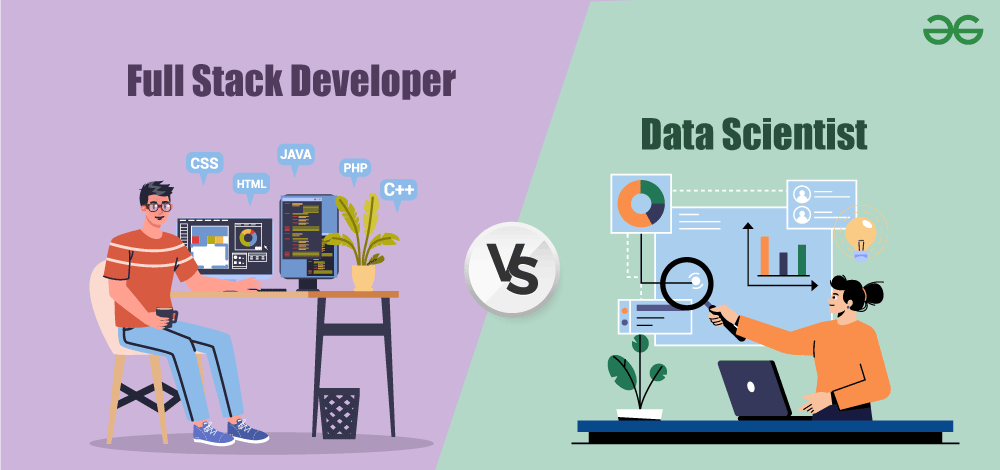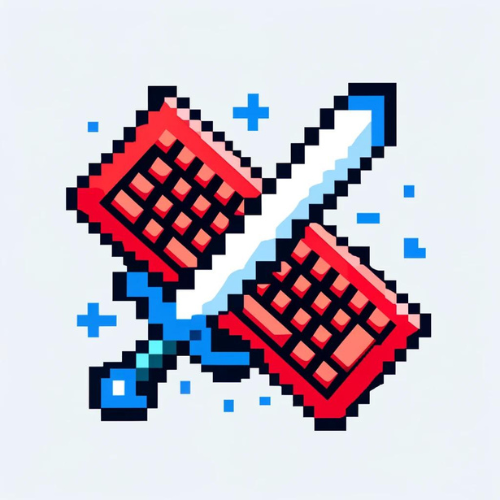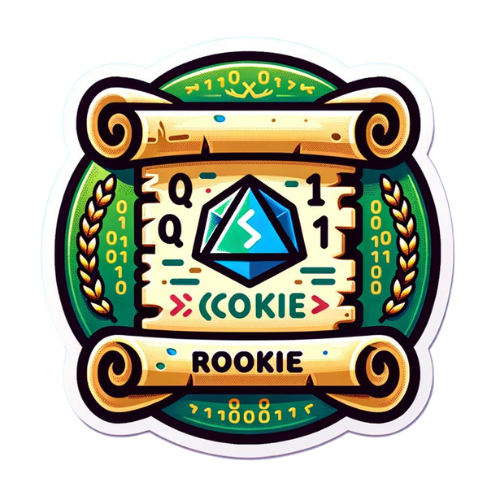Jun 27, 2024
No tags 😭
From Full-Stack to Data Science: My Journey So Far


Get featured on Geeklore.io
Geeklore is in very early stages of development. If you want to help us grow, consider letting us sponsor you by featuring your tool / platform / company here instead of this text. 😊
Introduction
Hello there! My name is Saad Fazal, and I am currently navigating the vast and ever-evolving landscape of the tech industry. I have been fortunate enough to wear many hats in my career, from a senior Shopify developer to a Unity game developer. Recently, I've been contemplating a shift towards data science. If you're a jack of all trades like me, you might find this guide helpful as you ponder your next career move.
My Tech Journey
Early Career: Diverse Beginnings
In my early years (2021), I dipped my toes into various fields. I started as a frontend dev, after 2 months then moved to backend dev and then shifted to Shopify developer after 7 months, where I got to delve into the intricacies of e-commerce. Shopify development allowed me to harness my front-end skills, work with databases, and manage servers. Each day was a new challenge in a Startup like this, pushing me to refine my skills and stay updated with the latest trends in web development, lol i still hate shopify.
This small Startup wants me to create some Mobile apps so they can test ads on them and see what it brings on the table. So i Transitioned into mobile app development with Flutter. I enjoyed creating seamless user experiences across both iOS and Android devices. It was a significant shift from web development, but it broadened my perspective on software development as a whole.
Game Development: A Unique Twist
After I created 2 apps on Flutter they asked me to create a small game and pick any tech stack of my choice, So i selected Unity. I took on a project that was quite different from my usual work: game development with Unity for Android. This was an exhilarating experience that combined creativity with technical prowess. Still it was way too hard to create games as a solo dev. What Solo Dev? Yes solo dev. The company doesn't have any developers to work on unity so i was alone in this journey. Building a game from scratch involved a steep learning curve, but it was incredibly rewarding to see my ideas come to life in a fully interactive format. It also taught me valuable lessons about user engagement and design thinking.
AI and Data Science: A Glimpse into the Future
A year and half ago, I stumbled into the realm of AI, focusing on machine learning (ML) and data science (DS). This field fascinated me with its potential to transform industries and drive innovation. Working on AI projects allowed me to explore complex algorithms, data manipulation, and predictive modelling. It was during this time that I realised my passion for data science (And while I was learning this the gpt got released).
The Transition to Data Science
Why Data Science?
I was just watching a video on youtube and saw a person talking about what data is and why it's important. That guy was Dr.Zeeshan Usmani. He talked about how we produce data and why it's important and after that video I searched about Data Science and I started learning it. I think this was the first decision I made to select my career and still I like DS. Now Data science combines my interests in coding, problem-solving, and analytics. It's a field that promises constant learning and the opportunity to make a significant impact.
Starting with Data Engineering
To successfully transition into data science, I decided to start with data engineering. This role aligns well with my background in backend development and server management. Data engineering involves building and maintaining the infrastructure required for data collection, storage, and processing. Here are some key areas I plan to focus on:
- Data Pipelines: Understanding how to design and implement efficient data pipelines to move and transform data.
- ETL Processes: Gaining expertise in Extract, Transform, Load (ETL) processes to clean and prepare data for analysis.
- Big Data Technologies: Learning tools like Hadoop, Spark, and Kafka to handle large-scale data processing.
Moving to Data Analysis
After establishing a solid foundation in data engineering, the next logical step is data analysis. This involves interpreting data to uncover trends, patterns, and insights. The skills required here include:
- Statistical Analysis: Applying statistical techniques to analyse data and draw meaningful conclusions.
- Data Visualization: Using tools like Tableau, Power BI, and Python libraries (e.g., Matplotlib, Seaborn) to create visual representations of data.
- Business Intelligence: Understanding how to leverage data insights to inform business strategies and decision-making.
Aspiring to Data Science
Finally, my ultimate goal is to become a data scientist. This role combines data engineering and analysis with advanced machine learning and predictive modelling. To reach this level, I need to:
- Master Machine Learning Algorithms: Gain deep knowledge of algorithms used for classification, regression, clustering, and more.
- Develop Predictive Models: Learn to build and validate models that can predict future trends and behaviors.
- Explore Deep Learning: Dive into neural networks and other advanced techniques to tackle complex data challenges.
Challenges and Considerations
Balancing Skills and Specialization
One of the biggest challenges in this transition is balancing my existing skills with the need to specialise. As someone with a broad range of experience, it’s tempting to dabble in multiple areas. However, data science requires a deep understanding of specific concepts and techniques. Focusing on one area at a time—starting with data engineering—will help me build a strong foundation.
Continuous Learning
The tech industry is ever-evolving, and staying relevant requires continuous learning. This is especially true for data science, where new tools and techniques emerge regularly. I plan to invest time in online courses, certifications, and hands-on projects to keep my skills sharp and up-to-date.
Networking and Mentorship
Building a network of like-minded professionals and finding mentors in the data science field is crucial. Networking can provide valuable insights, job opportunities, and support. I aim to participate in online forums, attend industry conferences, and engage with the data science community to grow my professional network.
Conclusion: A Beginner’s Guide to Transitioning
Transitioning to data science is a journey that requires careful planning and dedication. For those of you considering a similar path, here’s a beginner’s guide based on my experiences:
- Assess Your Current Skills: Identify the skills you already have that can be leveraged in data science. For me, backend development and server management were crucial starting points.
- Choose a Starting Point: Data engineering is an excellent entry point into data science. It provides a strong foundation in handling and processing data, which is essential for any data science role.
- Invest in Learning: Enrol in courses, obtain certifications, and work on projects that allow you to apply your knowledge. Focus on areas that are highly relevant to data science, such as Python, SQL, and big data technologies.
- Build a Portfolio: Showcase your skills through a portfolio of projects. This could include data pipelines you’ve built, data analysis reports, and machine learning models. A strong portfolio will make you stand out to potential employers.
- Network and Seek Mentorship: Connect with professionals in the data science field and seek out mentors who can guide you. Their insights and advice can be invaluable as you navigate your transition.
- Stay Committed: Transitioning to a new field takes time and effort. Stay committed to your goals, keep learning, and don’t be afraid to ask for help when needed.
My thoughts
If i didn't join a startup i wouldn't be able to experience these fields in my college life. I know it's confusing to figure out what you really want to achieve—I ask myself this question a lot. A jack of all trades is a master of none. This question comes into my mind a lot because I have experienced many fields and still it feels like I don't know any of them properly or I don't know anything, and now I'm considering a shift from data engineering to data science.
It seems like it could be a great path for me, but I'm curious—what would you do if you were in my place?



Latest Comments
Great writeup! Best of luck with your transition to data science. Your background will definitely be a huge asset! 👏
Hey dude! I can't express how happy I am seeing someone posting on my platform. You made my day. Btw, I also started with game development with Unity and that landed me my first job as a SysAdmin. Also, startups are honestly the best place to start (and even stay) in tech. Cheers and continue being awesome!
Hey! I'm glad to hear that! It's awesome to connect with someone with a similar journey. Thanks for the encouragement, startups really are great places to grow. Cheers and keep being awesome too!
Feel free to send me an email at [email protected]. I want to award you with a little hidden bounty I have set in the background for the first person posting on Geeklore.